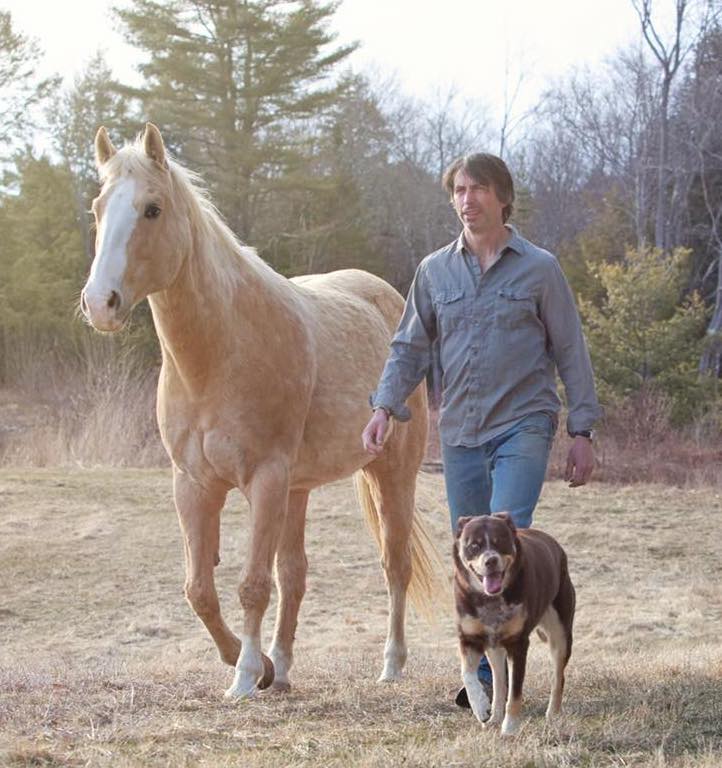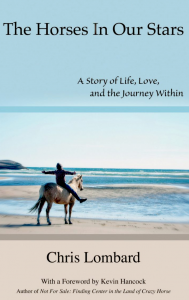
Chris Lombard with friends
There are lots of horsemen and women who talk about how life and horsemanship require the same approach. That is, there are great parallels between our strategies and attitudes to living life and working with horses. For example, if you prioritize a mindset of compassion, that can impact your job, your health, your interactions with fellow humans, and, of course, your interactions with animals.
Amy Skinner’s upcoming book, To Catch a Horse, for instance, discusses working with lightness to develop a better relationship with your horse. But she also considers lightness as it relates to teaching her students.
Chris Lombard’s new book, The Horses in Our Stars, is a delightful display of just how blended life and horsemanship can be. Over one hundred and thirty-three pages, Lombard, a Mainer and special guest at this October’s Best Horse Practices Summit, weaves his horsemanship observations with a human-to-human story of love and loss.
 Lombard gently makes the argument that in order to truly connect with another being, you must first know, love, and connect with yourself. The other person/dog/horse is more knowable if you address that project and maintain it as lifelong way.
Lombard gently makes the argument that in order to truly connect with another being, you must first know, love, and connect with yourself. The other person/dog/horse is more knowable if you address that project and maintain it as lifelong way.
Check out this passage on bracing and bolting:
Innocent enough, they are responses created by that self-preservation instinct that gets triggered the moment a situation resembles something that hurt in the past. Even if there is no real threat, even if it is all just made up in the mind, it does not matter. The mind sees something and feels the pain of the past which then shades the sight of the present. Thinking gets blocked, the mind has already made its decision. You become braced, and to those around you, your brace makes no sense. If pressed, you defend. If pushed, you shut down. If cornered, you fight. If in fear of your life, you bolt.
Is he talking about horses or humans? Himself or his friend?
Does it matter?
 Lombard talks about his years-long relationship with his horse, Rocky (whom he rides bareback and bridleless) and interlaces those moments with passages that detail a developing, then faltering relationship. The book’s human elements are more mosaic than actual. Writes Lombard, “I called upon times from around a ten-year span…in order to express my thoughts on all things love.”
Lombard talks about his years-long relationship with his horse, Rocky (whom he rides bareback and bridleless) and interlaces those moments with passages that detail a developing, then faltering relationship. The book’s human elements are more mosaic than actual. Writes Lombard, “I called upon times from around a ten-year span…in order to express my thoughts on all things love.”
Kudos, Chris!
Sounds fantastic